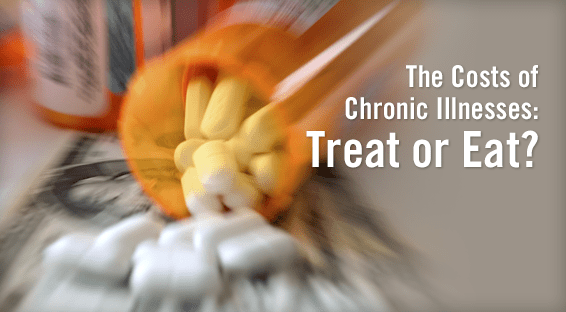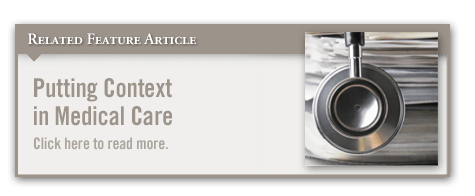Studies have suggested that adults with chronic disease are often unable to meet medication and food needs. “Physicians sometimes recommend or prescribe medications to patients with chronic diseases without considering the costs of these therapies,” says Seth A. Berkowitz, MD. Few studies have explored the relationship between cost-related medication underuse and food insecurity.
A Closer Look
In a study published in the American Journal of Medicine, Dr. Berkowitz and colleagues examined data from nearly 9,700 adults with chronic illness, looking specifically at groups that most commonly face unmet food and medication needs. About 23% of study participants reported cost-related medication underuse, nearly 19% reported food insecurity, and 11% reported having both of these problems.
“Our findings demonstrate that these problems are common,” says Dr. Berkowitz. “One in three chronically ill adults will have trouble affording food, medication, or both.” Adults who reported food insecurity were significantly more likely to indicate that they underused their medications due to costs. Some participants reported skipping their medications entirely so that they could afford to eat. Hispanics and African Americans were more likely than other groups involved in the study to report cost-related medication underuse and food insecurity. People with numerous chronic health problems and those without health insurance were also more likely to report difficulty affording medicine and food. Those receiving Medicaid and those participating in the Special Supplemental Nutrition Assistance Program for Woman, Infants, and Children were less likely to report such difficulties.
Many of the study participants who had trouble affording food and medications had incomes that were 100% to 200% above the federal poverty line. It is possible that people in this income range may not be eligible for government assistance. “Public officials should consider this fact when they set eligibility rules for assistance programs,” Dr. Berkowitz says. Assistance programs should be targeted to under-resourced groups who may face these choices.
Important Implications
According to Dr. Berkowitz, findings from the research may indicate that actions at the level of the healthcare system are required to help the many chronically ill Americans who are having a difficult time affording their medications and food. “It can be challenging for individual physicians to address these situations,” he says. “Healthcare systems should be attuned to the difficult trade-offs between food and medication-related expenses that patients face.”
Assessing for both household food insecurity and cost-related medication underuse—especially in patients from groups at high risk—may be warranted, Dr. Berkowitz says. “If these patients are identified, we can help link them to state, local, or private benefit programs to help reduce their burden of competing choices.”



